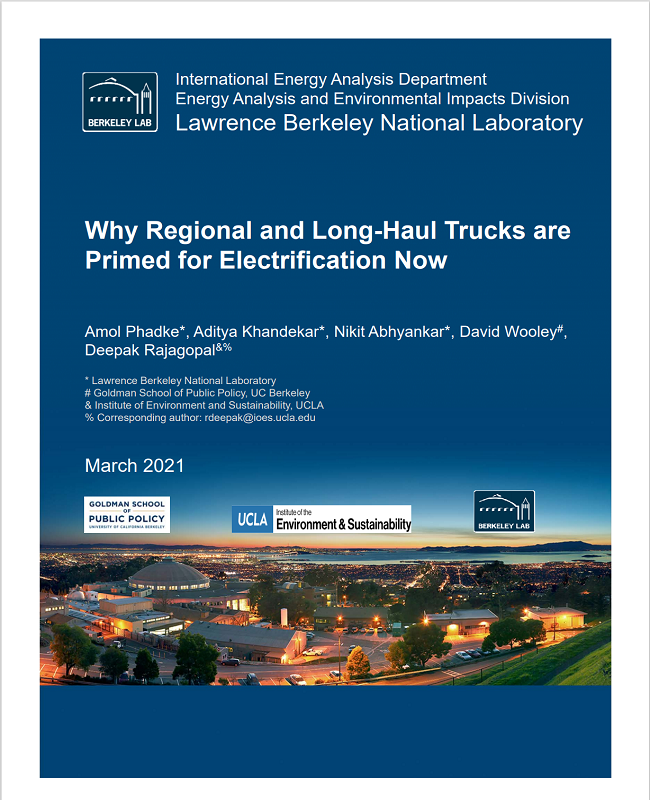Zero emission freight trucks are needed to both improve public health and reduce global greenhouse gas emissions, but at the same time are generally believed to be uneconomical. However, recent dramatic declines in battery prices and improvement in their energy density have created opportunities for battery-electric trucking today that were seldom anticipated just a few years ago. At the current global average battery pack price of $135 per kilowatt-hour (kWh) (realizable when procured at scale), a Class 8 electric truck with 375-mile range and operated 300 miles per day when compared to a diesel truck offers about 13% lower total cost of ownership (TCO) per mile, about 3-year payback and net present savings of about US $200,000 over a 15-year lifetime. This is achieved with only a 3% reduction in payload capacity. Even this small penalty can be reversed cost-effectively through light-weighting, in any case, only matters for a small fraction of trucks which regularly utilize their maximum payload.
Electric trucks appear poised to also meet the performance demands for a large share of regional and long-haul trucking today. The estimated average distance traveled between 30-minute driver breaks is 150 miles and 190 miles for regional-haul and long-haul trucks respectively in the US. Thirty minutes of charging using 500 kW or mega-Watt scale fast-chargers would add sufficient range without impairing operations and economics of freight movement. However, as with almost any clean technology, higher upfront capital costs of both vehicles and charging infrastructure are major barriers when electric trucking is in its infancy. Without strong policy support, coordinated investments in both vehicle manufacturing and fuel infrastructure will not be forthcoming on the scale needed to harness the true potential of battery electric trucks.
Preview the report here:
More About this Resource
Publisher: Lawrence Berkeley National Laboratory
Date: March 31, 2021
Type: Research Reports
Tags: Medium- and Heavy-Duty
Countries: United States
States: None

